
[ad_1]
Good morning. On Saturday, Darya Dugina, the daughter of the ultranationalist Russian ideologue Alexander Dugin, was killed by a car bomb in Moscow. Yesterday, Vladimir Putin called it a “vile, cruel crime”, and Moscow said that Ukraine was responsible. But that description tells only a small part of the story of an attack in the Russian capital that is unprecedented in the six months since the war began.
There are many unresolved questions about the killing – and the military consequences that could flow from it. Today’s newsletter, with the Guardian’s Moscow correspondent Andrew Roth, is about some of the possible answers. Here are the headlines.
Five big stories
-
Environment | The Tory leadership frontrunner, Liz Truss, was responsible for cutting millions of pounds in funding earmarked for tackling water pollution during her time as environment secretary, the Guardian revealed.
-
Crime | A nine-year-old girl has been shot dead in Liverpool and two other people taken to hospital with gunshot injuries. Officers began a murder investigation after attending a house at 10pm over reports an unknown male had fired a gun inside the property.
-
US politics | Donald Trump on Monday filed suit against the US government over the FBI search of his Mar-a-Lago home, seeking to temporarily stop the bureau reading seized materials until a special court official can be appointed to review documents concerned.
-
Policing | The Metropolitan police were wrong to Taser a man on Chelsea Bridge and their “excessive and unnecessary force” contributed to his death, his family have said. Oladeji Omishore, 41, was hit by the electric stun gun on 4 June before climbing over a barrier and falling into the River Thames below.
-
Justice | Criminal barristers in England and Wales have voted in favour of an all-out strike next month in a clash with the government over jobs and pay, with 79.5% of members of the Criminal Bar Association voting to strike.
In depth: Setting the stage for ‘total war’
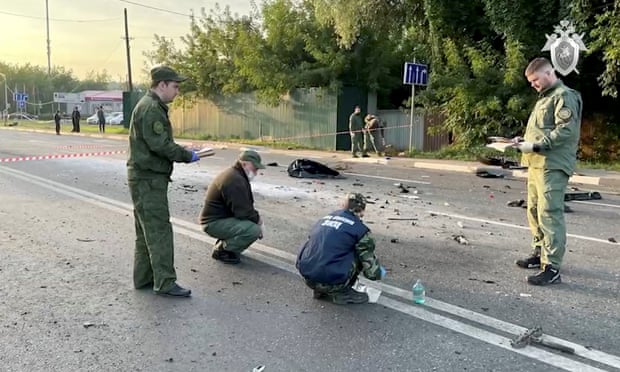
What do we know about how the attack happened?
On Saturday night, Alexander Dugin gave a lecture at a festival at an estate in Moscow dedicated to the kind of hard-right pro-war worldview he is known for. He and his daughter Darya Dugina left, apparently in different vehicles. About five minutes after Dugina left, the Toyota Land Cruiser she was driving was blown up by a car bomb. Footage circulated on social media appeared to show Dugin standing next to the wreckage in a state of distress.
Reports in the Russian media on Monday claimed that an untraceable telephone may have been used to remotely detonate the device after it left a garage where CCTV had been switched off. They also claimed that the perpetrators may have been following the car when it blew up.
It’s hard to assess some of these claims with any certainty, Andrew said. Russian authorities have given limited evidence to back up their version of events, “but that doesn’t discount it”. But we can say with confidence that Dugina died in an attack which may have been aimed at her father – and it appears to have been carefully planned.
Who was Darya Dugina, and who is her father, Alexander Dugin?
“Most analysts who heard the news immediately thought it was Alexander who had been targeted,” Andrew said. Dugin exults in the nickname “Putin’s Brain”; but while some people in Putin’s circle have read Dugin’s work, it is less clear that he has the kind of sway on the Russian leader that would justify that title.
“He’s the kind of person you see on these gladiatorial screamathons you get on pro-Kremlin TV,” Andrew said. “But it’s important to understand that people like Dugin don’t make the final decisions – they’re just one pressure group in a complicated country.” As a rough comparison, think of some of the talking heads with tenuous links to the Trump administration who turn up on Fox News.
Dugin’s politics are extreme: he is an ultranationalist who advocates for a new Russian empire. At the same time, Andrew said, he is “a political opportunist – I remember him requesting €500 to give interviews”.
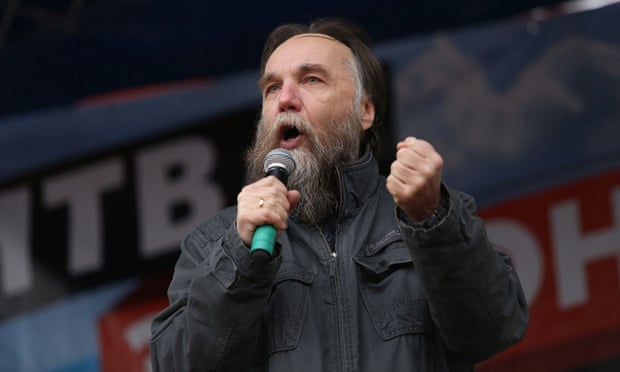
“This is not the same as an attack killing a member of a Kremlin official’s family,” he said. “In those terms, he’s small fry. But he has an outsize profile.” That profile suggests another important feature of the attack: “He doesn’t have the security detail you would associate with somebody at the Kremlin. He’s a softer target.”
Dugina, meanwhile, was the editor of a disinformation website, United World International, and a TV pundit. Her politics were “close to a continuation of her father’s approach, but she was a little slicker,” Andrew said. She was also less prominent: “People in Moscow know who he is. You didn’t have to know who she was unless you were following this stuff closely.” Nonetheless, her pro-war rhetoric had earned her a place on UK and US sanctions lists, and it is not impossible she was targeted herself.
Who does Russia say was responsible?
One of the key questions in the aftermath of the attack was whether Russia would “frame it as terrorism or sweep it under the rug”, Andrew said; on Monday, the Federal Security Service (FSB) provided an answer. It accused Ukrainian intelligence services of carrying out the killing, and said the suspect was a Ukrainian woman in Russia with her 12-year-old daughter since July. The suspect had attended the festival, and fled to Estonia in a Mini Cooper after the bomb went off.
The FSB’s version of events appears to suggest that it was Dugina and not Dugin who was the target. Ukraine has denied responsibility for the attack, with one official noting: “Not many people here have heard of him, and nobody had heard of his daughter.”
The FSB has provided little evidence for its claims beyond footage of the woman driving across the border in and out of Russia. As Shaun Walker argues in this excellent analysis of the claimed chronology, there are plenty of reasons for scepticism. He noted how quickly the agency put its case together, and how remarkable it would be for a Ukrainian assassin with a child in tow to navigate Russia with impunity. “If true, it is a shocking FSB failure and, if false, it is a strangely self-incriminating tale to invent,” he wrote.
At the same time, Shaun notes, it is possible to see a motive to carrying out the attack from Kyiv. If so, it marks a departure from Ukraine’s strategy of retaliation within Russia, which has been confined to military and logistical assets near the border, and a string of attacks in Crimea, the Black Sea territory annexed by Russia in 2014.
Is that the only possible explanation?
No. One claim is that the attack was carried out by an underground opposition movement within Russia – “but I’m sceptical of that”, Andrew said. “From what we know the internal opposition haven’t done anything like this before. It would be a huge step up.”
There’s also the theory of a false flag attack carried out by elements close to the Kremlin as a pretext for retaliation. “There is no reason to do that if you want to intensify attacks on Ukraine or crack down on the opposition,” Andrew said. ”The Kremlin doesn’t need a pretext to do that – it does whatever it wants.” If so, the significant downside of spreading panic among Kremlin outriders doesn’t seem worthwhile.
Finally, some have floated the possibility that the killing was simply a crime tied to a business dispute involving Dugin or Dugina. But that doesn’t appear to align with the sophistication of the attack, even if the FSB’s claims should be taken with a grain of salt.
What are the likely consequences of the attack?
“This is unprecedented here,” Andrew said. “And there are already people writing that this is not the last act of terror we’re going to see. It will have scared people in Dugin’s circles. Until now, they have been able to agitate for war without thinking it would come for them.”
The larger question is whether claims of Ukrainian responsibility will lead to a Russian escalation. “It could set the stage for a new wave of political violence,” Andrew said, against so-called “decision making centres” and specific Ukrainian officials. But if more general attacks on Kyiv increase, it’s worth bearing in mind that such an escalation was already expected to coincide with Ukraine’s independence day on Wednesday.
Regardless, for the most belligerent voices in Russia – voices aligned with Dugin’s – the death of his daughter will be viewed as evidence for the strategy they already espoused. “Many of those who’ve been agitating for a more aggressive approach are demanding a response now,” Andrew said. “They want total war.”
What else we’ve been reading
-
Zoe Williams’s interview with Mick Lynch is a great primer on the RMT leader who has become something of a folk hero during Britain’s summer of strikes. Hannah J Davies, deputy editor, newsletters
-
With the Tory leadership contest apparently all but over, you might expect Rishi Sunak’s supporters to stop attacking Liz Truss. Instead, the criticisms have intensified. Rowena Mason’s analysis is an excellent guide to what one source calls a level of vitriol that “will be extremely difficult to heal”. Archie
-
A new release from Christine and the Queens and tours from Sugababes and Kendrick Lamar (as teased at Glastonbury) are among the autumn musical highlights helpfully compiled by the Guardian music team. Hannah
-
If dragons and thrones leave you cold, read this Stuart Heritage piece about how the real stars of TV this year are fictional chefs. (And do watch The Bear, one of the US shows he mentions, when it comes out – it’s amazing.) Archie
-
Water vapour, poison … or something else? I enjoyed this explainer from Dazed on how chemtrails conspiracy theories took over. Hannah
Sport
Football | Manchester United produced a superb performance to beat Liverpool 2-1 at Old Trafford. After a difficult start to the season, goals from Jadon Sancho and Marcus Rashford were enough to secure the win.
Football | England and Manchester City forward Ellen White has announced her retirement at the age of 33, saying all her football “dreams came true” in winning Euro 2022. The England women’s team’s all-time record goalscorer with 52 goals, White earned 113 caps for her country.
Cricket | In an exclusive interview with the Guardian, Ben Stokes described how a spate of anxiety attacks twelve months ago led him to consider retiring from cricket. Stokes said that he is now in a much better place but “it’s an ongoing process” and urged fellow sufferers to seek help.
The front pages

The Guardian this morning leads with “Truss cuts millions from services that kept sewage off UK beaches” while the i has “Truss to risk ‘flying blind’ after Budget pledge U-turn”. The Financial Times says “UK inflation projected to top 18% as gas prices surge” while the Times says “Spiralling inflation is forecast to hit 18%” and the Express asks “how will millions cope” with the effects. “Snowflakes blocking A&E” – somewhat literally, the Metro reports, after a patient walked in demanding dandruff treatment. “Refugee host cash ‘should be double’” – that’s the Telegraph’s lead. “Justice is being held to ransom” – the Daily Mail paraphrases Dominic Raab as barristers go on strike. “Ronaldo doesn’t feel sorry at all … he left me crying and shaking” – the Mirror has a follow-up on an incident involving a smashed phone.
Today in Focus
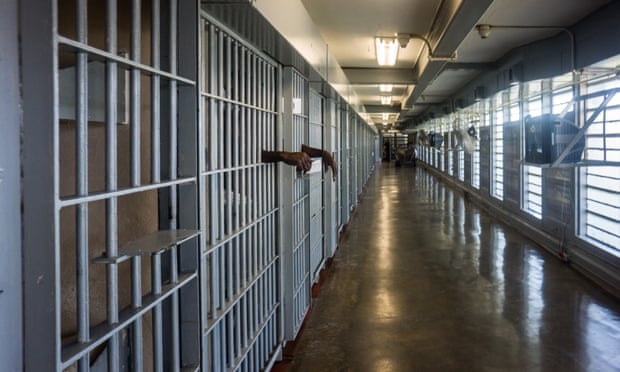
Revisited: The Division: New Orleans – part two
In 1995, Kuantay Reeder is sentenced to spend the rest of his life in prison for a crime he says he didn’t commit. He spends years doing hard labour in the fields of the prison, and trying to have his conviction overturned. By 2020, he has exhausted almost every legal avenue available to him. But 2020 is also the year that Jason Williams is elected to be the new district attorney of New Orleans. Will the creation of a new civil rights division in his office offer hope to Reeder?
Cartoon of the day | Stephen Lillie
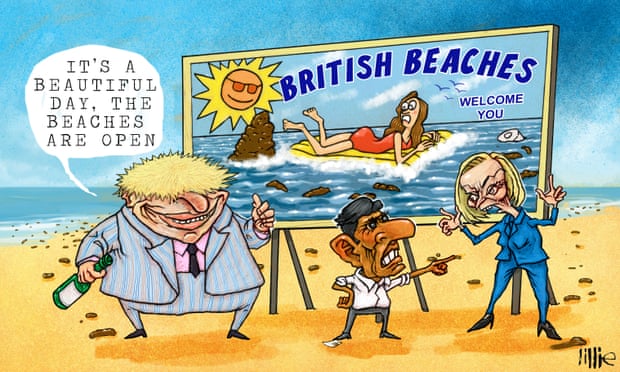
The Upside
A bit of good news to remind you that the world’s not all bad
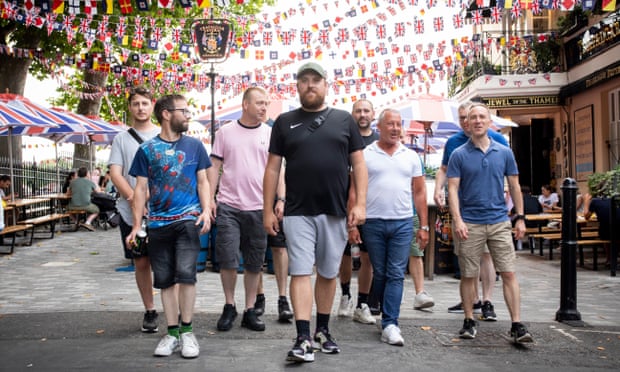
A few years ago, Scott Oughton-Johnson was struggling with stress and anxiety following a long custody struggle. He’d had cognitive behaviour therapy from the NHS but was then, in his words, “back in the wild” and having to cope on his own, as Sirin Kale reports in the latest profile for the Guardian Angel series. So Oughton-Johnson launched a Facebook group with a video asking if any other men in his south London neighbourhood were up for a walk. Two years later, the Proper Blokes Club has a website and an active WhatsApp group, and men in neighbouring boroughs are organising their own walks. “Each day we do a check-in, and say, ‘Good morning. Hope everyone is all right. Have a good day,’” says Oughton-Johnson. “We’ve had incidents where people say, ‘I’m not in a great place; is anyone about?’ And people have gone and met them, or called them up.”
Sign up here for a weekly roundup of The Upside, sent to you every Sunday
Bored at work?
And finally, the Guardian’s crosswords to keep you entertained throughout the day – with plenty more on the Guardian’s Puzzles app for iOS and Android. Until tomorrow.
[ad_2]
Source link